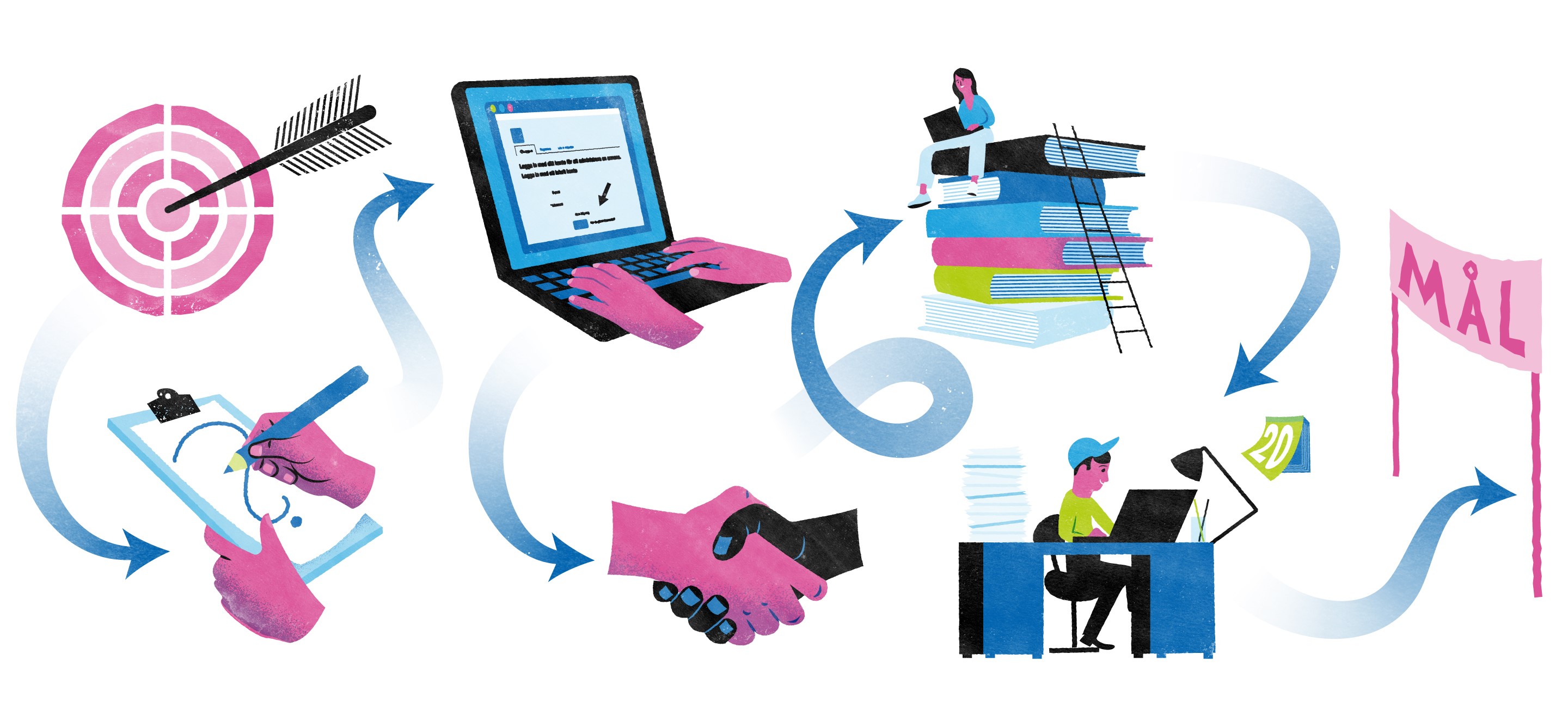Collaborating with a student
By working together with a student, you will gain access to new knowledge and expertise. We have gathered a few things to consider in order for the collaboration to work out smoothly.
The degree project process

1. Formulate the hypothesis or situation to be explored
The written thesis/degree project should consist of issues/questions or subject areas that your company wants to highlight. Make it clear to the student what your purpose is/purposes are, and what you want the work to lead to. When a student has taken on a proposal, you and the student develop the proposal for a subject for the written thesis or degree project. The formulated hypothesis or situation (or issues/questions) to be explored must then be approved by the academic supervisor. The academic supervisor’s task is to ensure the academic stringency and breadth in the work. In order to fulfil the formal requirements, the written thesis/ degree project must have a scientific and/or scholarly character, therefore the student must follow the rules of their own subject for thesis writing.
2. Designate contact person at the company
The company is expected to designate a contact person who conducts an on-going regular dialogue with the student. The contact person should be accessible and have time set aside for questions and feedback. It is therefore recommended that you schedule continuous reconciliation meetings in preparation for and during the project.
3. The principle of public access to information and confidentiality
The written thesis/degree projects forms a part of the student’s examination and will be presented in writing and orally at a thesis seminar open to the public. Swedish institutions of higher education are public authorities subject to the principle of public access to information, which means the possibilities for the imposition trade secrets/confidentiality on the student work is limited.
If there is information that may not be made public, it will be necessary to conduct a dialogue with the academic supervisor to discuss this. If no any results may be made public at all, it may not be appropriate that the placement be carried out as a written thesis /degree project.
